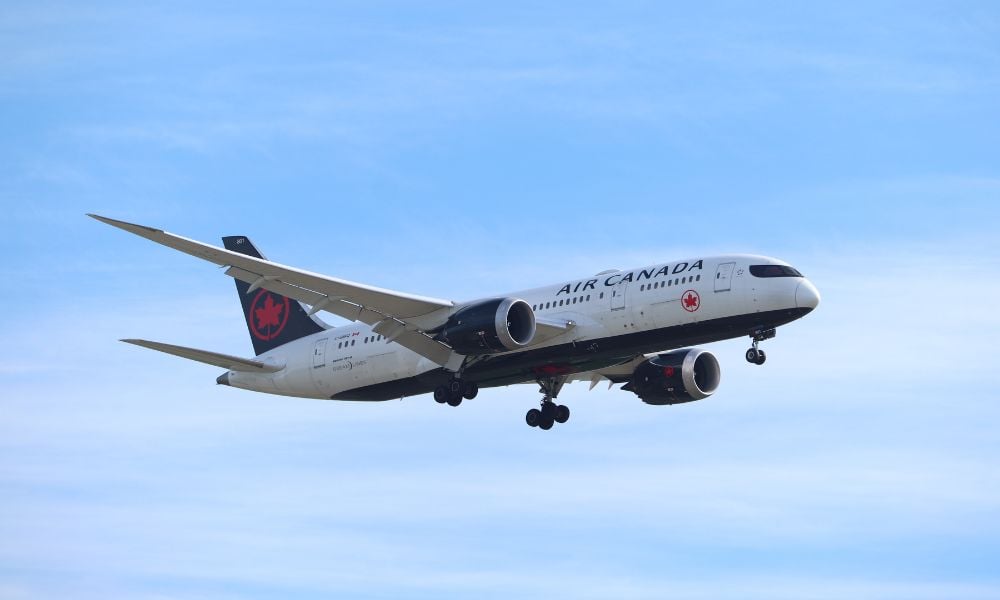CUPE campaigns to end unpaid work as negotiations with Air Canada address pay and working conditions

Air Canada flight attendants, represented by the Canadian Union of Public Employees (CUPE), launched a public awareness campaign while negotiating their contract with the airline, according to the Financial Post.
CUPE’s Air Canada Component president, Wesley Lesosky, leads over 10,000 members working under a decade-old collective agreement, which expires on March 31.
Key issues in negotiations include unpaid work, stagnant wages, and legislative changes to protect worker rights.
A central issue raised by CUPE is the lack of compensation for pre- and post-flight duties.
While flight attendants are paid only for in-flight hours, they also perform essential tasks like boarding passengers, conducting safety checks, and assisting those with disabilities—duties required by Transport Canada.
CUPE estimates that flight attendants perform 35 hours of unpaid work per month.
“No other worker would be expected to show up for work and not get paid for it,” said Lesosky.
CUPE’s awareness campaign includes television advertisements and an interactive pop-up installation in Toronto to draw attention to the issue.
The union has also expressed concerns about low wages and eroded purchasing power.
Air Canada’s starting salaries for flight attendants are approximately $27,000 annually, which Lesosky calls inadequate for a professional career.
With starting hourly wages around $30 and only in-flight hours paid, many attendants, especially new hires, earn less than minimum wage when unpaid duties are factored in.
“It’s not uncommon for a flight attendant to work a 14-hour day but receive pay for just six to eight hours,” said a CUPE representative.
Lesosky noted that inflation has worsened the financial struggles of members, forcing some to take additional jobs despite Air Canada’s profitability.
CUPE is calling for higher wages, better benefits, and improved scheduling rules in the negotiations.
The issue of unpaid work is not unique to Air Canada but reflects broader industry practices.
In the United States, airlines like Delta have begun compensating for pre-flight duties, a standard Canadian airlines have yet to adopt.
Lesosky questioned why Canadian flight attendants lack the same protections, stating, “Why is it that flight attendants are excluded from a minimum standard that applies to every other worker?”
CUPE is also supporting Bill C-415, introduced by NDP MP Bonita Zarrillo in October 2024. The bill seeks to standardize pay practices for flight attendants across Canada, ensuring compensation for all mandated duties, including those performed on the ground.
Lesosky has worked with the NDP on this legislation, describing it as “a significant step toward addressing the nationwide issue of unpaid work in the airline industry.”
Negotiations with Air Canada began on December 11, with CUPE prioritizing a fair agreement while avoiding labour disruptions. “Our goal is to reach an agreement that satisfies our members and avoids disruption to passengers,” Lesosky said.
However, he warned that union members are prepared to take action if necessary: “Enough is enough. Our members deserve to be paid fairly for the critical work they do.”



